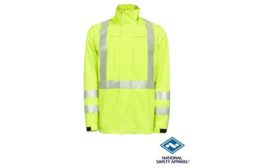Home » outdoor workers
Articles Tagged with ''outdoor workers''
A FairWarning Story
Worker advocates burned up over lack of federal heat protections
May 10, 2019
Become a Leader in Safety Culture
Build your knowledge with ISHN, covering key safety, health and industrial hygiene news, products, and trends.
JOIN TODAYCopyright ©2025. All Rights Reserved BNP Media.
Design, CMS, Hosting & Web Development :: ePublishing








